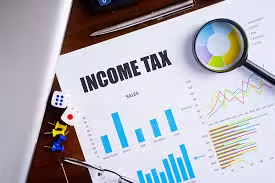Section 43B of the Income Tax Act is a crucial provision that governs the deduction of certain expenses for businesses and individuals, setting forth conditions for claiming these deductions. Here’s a detailed look at its various aspects.
What is Section 43B of the Income Tax Act?
Section 43B outlines specific expenses that are deductible, provided certain conditions are met. These expenses include:
- Statutory Dues: Payments for taxes, cesses, duties, or fees under any law, and contributions to provident funds or other employee welfare funds.
- Employee Contributions to PF and ESI: Employer contributions to employee provident funds or other welfare funds are deductible only if paid before the specified due date.
- Bonuses and Commissions: Bonuses or commissions to employees are deductible only if paid before the income tax return filing deadline.
- Leave Encashment: Payments for leave encashment are deductible if made before the income tax return filing deadline.
- Interest on Loans: Interest on loans for business purposes is deductible if actually paid before the income tax return filing deadline.
Conditions for Claiming Deductions under Section 43B
To claim deductions under Section 43B, the following conditions must be met:
- Timely Payment: Payments must be made on or before the specified due date.
- Actual Payment: Payments must be actually made, not merely accrued or payable.
- Compulsory Payment: Payments must be mandatory, not discretionary.
- Documented Payment: Proof of payment must be provided through written documents like checks, bank drafts, or online transfers. Cash payments are not deductible.
Effect of Section 43B on Tax Liability
Section 43B significantly impacts the tax liability of businesses and individuals. For instance, failing to pay provident fund contributions or loan interest before the due date means these expenses cannot be deducted in that financial year, leading to higher taxable income and increased tax liability. Timely payments are crucial to avoid such adverse effects.
Exceptions to Section 43B
There are certain exceptions to the conditions of Section 43B:
- Wages paid as bonuses or commissions for employee services that, if not paid as such, would not be payable as profits or dividends.
- Employer contributions to recognized gratuity funds under the Employees’ Provident Funds and Miscellaneous Provisions Act, 1952, if not paid as wages.
- Contributions to pension schemes under the same Act, if not paid as wages.
Summary
Understanding Section 43B is vital for ensuring timely payments of specified expenses to avoid negative impacts on tax liability. Businesses and individuals should consult tax experts or chartered accountants to navigate the nuances of the Income Tax Act and comply with Section 43B provisions. Non-compliance can result in fines and penalties, affecting financial stability.

